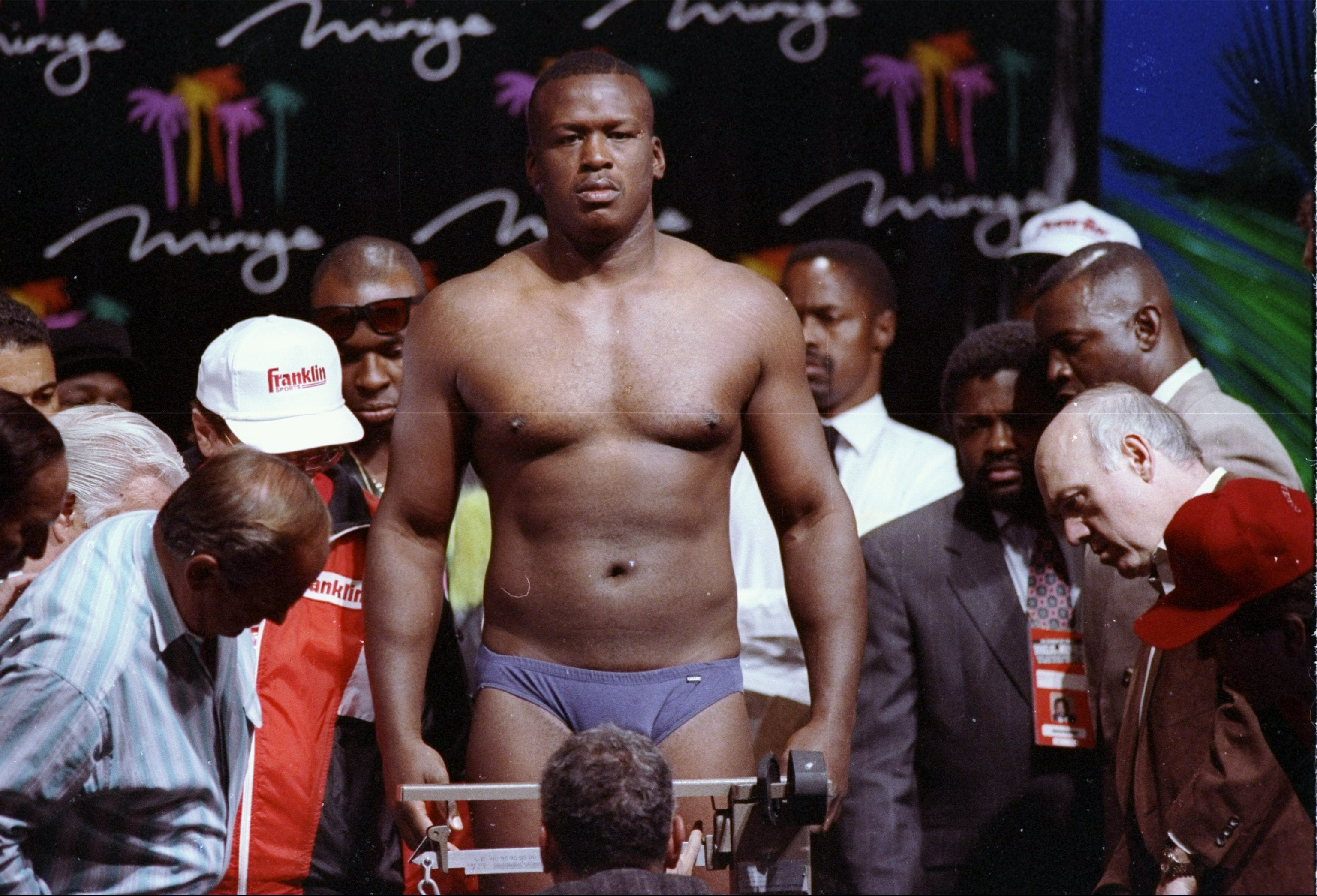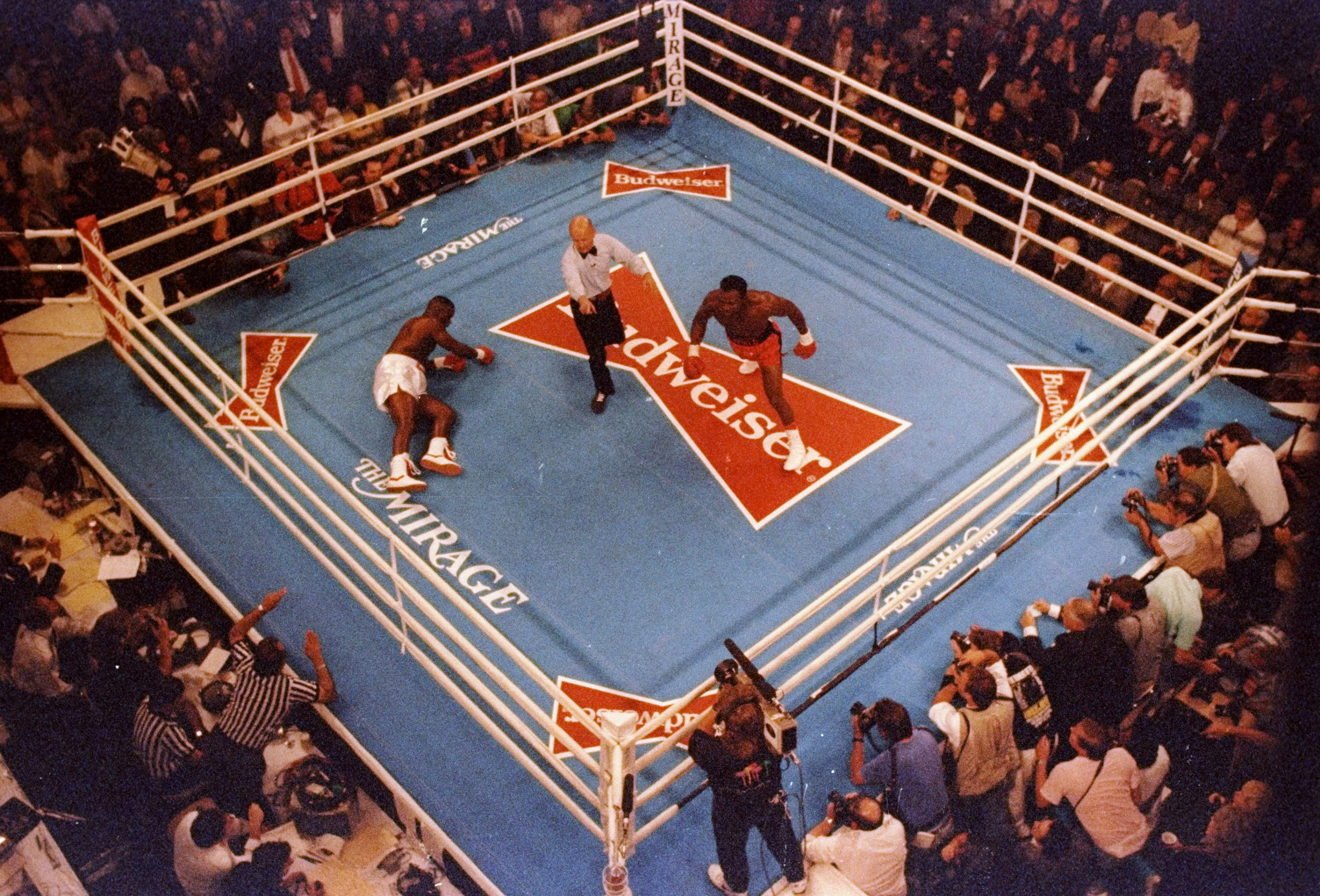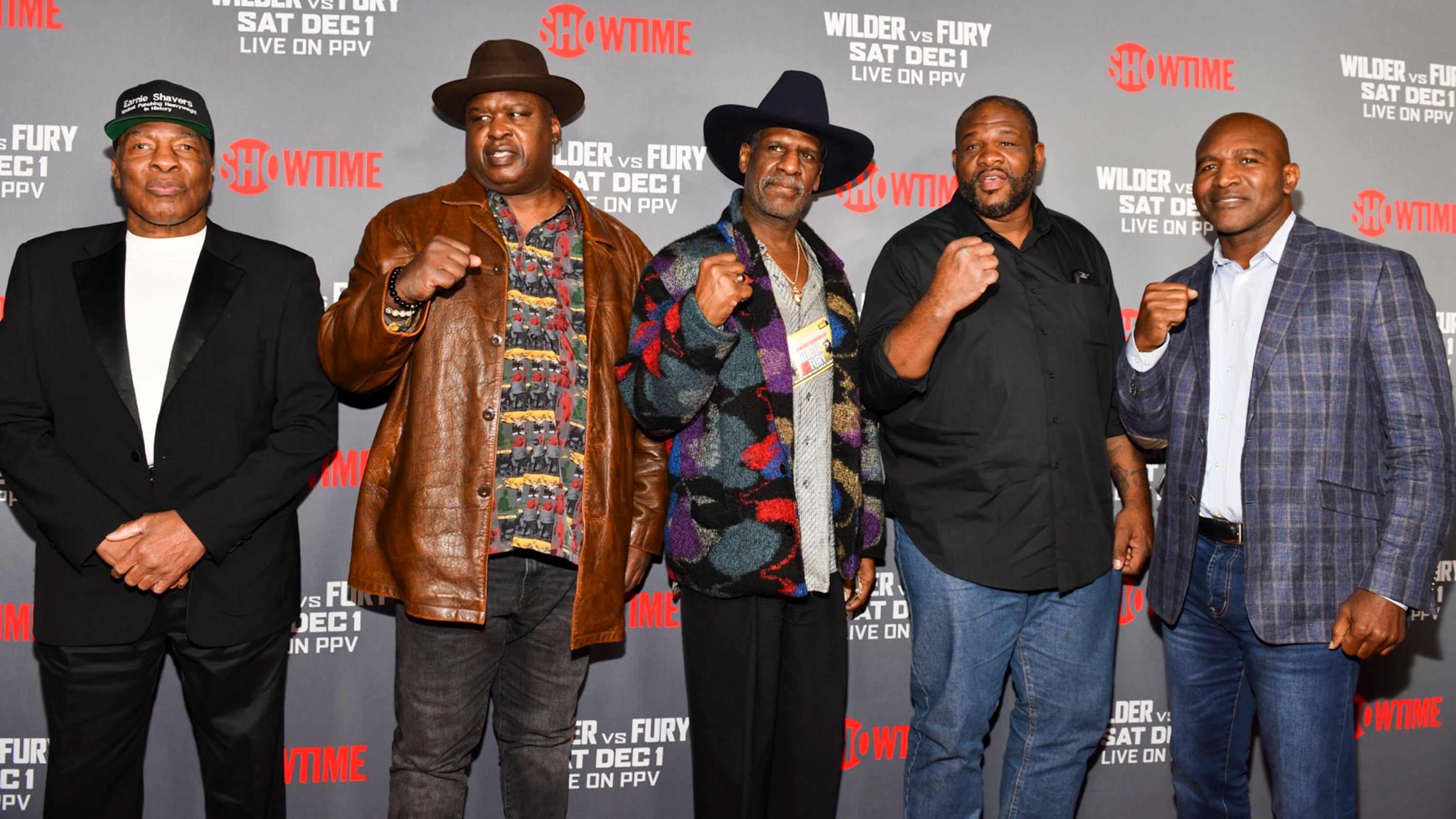The sharp decline of Buster Douglas and how a heavyweight fairy tale turned ugly
The former world heavyweight champion stunned the world to wipe out Mike Tyson as his life changed forever before facing Evander Holyfield in 1990

Buster Douglas was the hero and the villain of 1990 in a sport that loved and hated and then forgot him.
In February of the year, in Tokyo, he was a 42-1 underdog when he knocked out Mike Tyson to win the heavyweight world title. On October 25 1990, in Las Vegas, he floated to the canvas at the fists of Evander Holyfield in three easy rounds. The highs and the lows.
In the middle, in the months between fights, Douglas was at the centre of a great, great promotional battle between a man called Steve Wynn, who owned and financed the Mirage in Las Vegas, and Don King and his partner, Donald Trump.
Wynn won, secured Douglas on a two-fight deal worth $60m (£43m) and briefly ruled boxing. King and Trump lost, but they were compensated close to five million dollars. King and Trump, incidentally, had agreed terms for a rematch between Tyson and Douglas in Tokyo, shaking hands at ringside. The details of the ‘rematch’ contract remain murky.
Douglas arrived in Las Vegas a star, the man that knocked out Tyson, the man to change the face of boxing and with Wynn at his side, there was optimism for a brand-new future. However, Buster was no longer hungry. He had lost his edge and, after being installed in a luxury villa in the palm tree-lined grounds of the Mirage, he started to eat. His days were numbered in the villa next to the dolphin pool.

There was a sauna in the villa and in the sauna was a phone; Buster ordered hamburgers; Buster ordered food. Buster ordered just about anything that was dead in the chef’s fridge. There were disturbing rumours and they were, in the end, all true. Buster was lost in Las Vegas in the weeks and days before the fight. Holyfield, meanwhile, trained like his life depended on a win. He packed his days with suffering, wielding the Bible to guide his efforts and keeping his head down, mostly bowed in prayer.
Wynn created the most expensive fight in history on the night they finally fought. Douglas was 14lbs heavier than he had been for Tyson, but the weight is a convenient screen for his loss of desire. Wynn paid the pair $34m (£25m); Douglas got 24m (£17m). Wynn lost two million $2m (£1.5m) and that has to be the best two million ever spent in history; Mirage will always be associated with the fight and the Mirage was Wynn.
The punches that sent Douglas down were accurate, fast and neat. However, the referee, Mills Lane, insisted that Douglas could have beaten the count and got up. It was damning judgement. And, by the time Lane was chirping, Douglas had started his long, long journey to the unknown. He was, in Las Vegas terms, obscure before Holyfield left as champion. Buster was gone.

The failing was also criticised by the boxing icon, Eddie Futch, the trainer with the authority to shape opinion. Futch’s words were greeted with reverence, his wisdom sought. He talked and the word ‘cowardly’ was heard. That is savage, poor Buster was being crucified for losing his ambition and taking the money. He was not the first and he was not the last, but he was the richest.
Wynn had shown Buster to the private villa and it was, according to Las Vegas folklore, Wynn who evicted the fat, fallen champion the following morning. It’s probably true; I hope so. Buster never heard the dawn chorus of laughing, captured dolphins ever again, that is for sure.
I have an image, one that I have studied, of Buster Douglas, the former heavyweight champion of the world, the following morning, sitting in a large chair in the Mirage lobby. His suit crumpled, his eyes vacant, his title gone. It is a brutal end to a bad night and in Las Vegas there are a lot of those, especially in the heavyweight division.
Buster Douglas had no power to stop his fairy tale turning ugly in late October 1990 and he left town like he had been expelled, found guilty of a form of avarice in a supposedly sinless paradise.

He then ballooned to 400 pounds, went to hospital for diabetes, drove his convertible Porsche, fished, laughed and lived. There was regret, make no mistake, but Buster did it his way.
There are some in my business who consider the fight the last great heavyweight fight and I see what they mean about that night 31 years ago. That is why I celebrate its anniversary.
Join our commenting forum
Join thought-provoking conversations, follow other Independent readers and see their replies
Comments
Bookmark popover
Removed from bookmarks